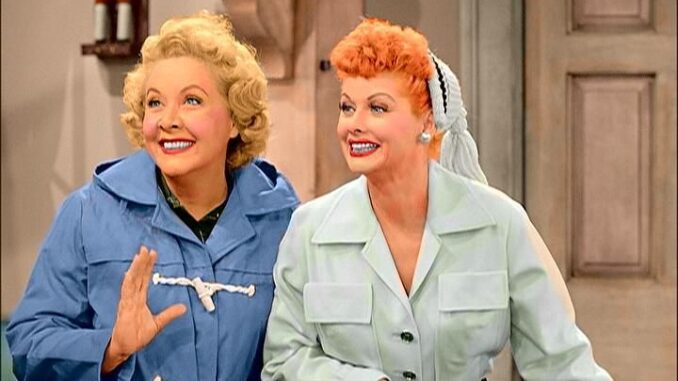
More than seven decades after its debut, I Love Lucy remains one of the most iconic sitcoms in television history. Despite changing times and shifting audience tastes, the show’s comedic moments continue to resonate and bring laughter to generation after generation.
The Charm of Clumsy Humor
Lucille Ball’s portrayal of Lucy Ricardo perfectly embodies the enduring appeal of situational comedy. Lucy was clumsy, impulsive, and often landed herself in trouble of her own making. Yet her lovable awkwardness drew empathy from audiences. Rather than laughing at her, viewers laughed with her—recognizing their own everyday mishaps in Lucy’s escapades.
Lucille Ball – A Sitcom Pioneer
Lucille Ball wasn’t just a comedy star; she was a trailblazer who proved that a female lead could anchor a successful sitcom. In the 1950s, women on television were often limited to roles as dutiful wives and mothers. Lucy Ricardo broke that mold—bold, funny, and sometimes “rebellious,” she wasn’t afraid to stir up chaos. Ball’s performance paved the way for generations of strong, funny, independent female leads in sitcoms that followed.
A Lasting Legacy in Modern Sitcoms
The influence of I Love Lucy continues to shape television today. Modern sitcoms like Friends, The Big Bang Theory, and Brooklyn Nine-Nine borrow from its formula—ensemble casts, sharp timing, and comedy drawn from characters’ quirks and flaws. Lucy’s legendary antics in the kitchen or in public foreshadow the situational chaos still central to contemporary comedy.
Laughter Without an Expiration Date
What makes I Love Lucy a “timeless comedy” is its simplicity. It doesn’t rely on special effects or overly complex dialogue. Instead, the brilliance lies in Lucille Ball’s physical humor, quick wit, and natural charisma. That’s why, even after 70 years, audiences continue to laugh with Lucy—and find joy in her endless misadventures.
